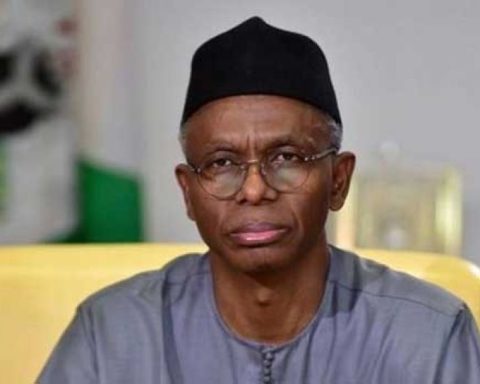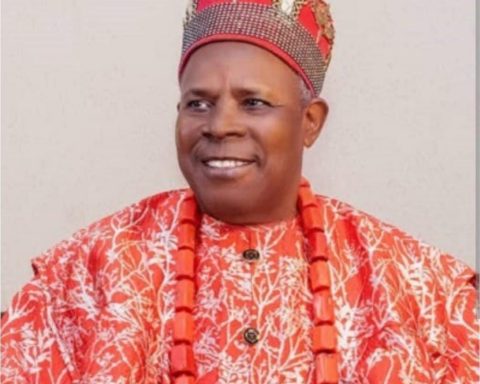The ancient rivalry between two of Yorubaland’s most revered thrones flared again this month when the Ooni of Ife, Oba Adeyeye Ogunwusi, conferred the title of Okanlomo of Yorubaland on Chief Dotun Sanusi, nicknamed ‘Ilaji’ an Ibadan based businessman.
Days later, the Alaafin of Oyo, Oba Akeem Abimbola Owoade, issued a 48-hour ultimatum demanding that the title be withdrawn, insisting that only the Alaafin reserves the right to confer distinctions that claim authority over the entire Yoruba nation.
Join our WhatsApp ChannelThe ultimatum sparked a storm of reactions. Yoruba leaders, cultural associations, and social media commentators weighed in, urging restraint. To many, the row was more than a tussle over titles it reopened the age-old question of supremacy between Ife, the cradle of Yoruba civilization, and Oyo, the seat of a once-mighty empire.
The Cradle vs. the Empire
For centuries, the Ooni of Ife has been revered as the spiritual custodian of the Yoruba people, the living symbol of their origin. Ife is regarded as the ancestral home, where Oduduwa is believed to have founded the Yoruba race. The Alaafin of Oyo, on the other hand, embodies political authority. The Oyo Empire, which rose to prominence from the 14th century, commanded vast territories and wielded military and political influence across West Africa.
This duality spiritual primacy versus political supremacy has fueled a rivalry stretching across generations. While the Ooni embodies sacred origins, the Alaafin symbolizes imperial strength. The balance of power between both stools has rarely been harmonious.
A Fragile Peace, Revisited
The relationship between the two thrones has oscillated between tension and reconciliation. In the late 20th century, Oba Okunade Sijuwade (Ooni of Ife, 1980–2015) and Oba Lamidi Adeyemi III (Alaafin of Oyo, 1970–2022) clashed repeatedly over protocol and recognition. When Oba Ogunwusi ascended the Ife throne in 2015, he broke with the past by visiting Alaafin Adeyemi in a move that was widely hailed as a peace gesture. For a time, it seemed that the old rivalry had been laid to rest.
But with the Ooni’s recent conferment of a pan-Yoruba title and the Alaafin’s stern response, history appears to have come full circle.
Tradition Meets the Law
Central to the dispute is the question: who has the right to confer chieftaincy titles in Yorubaland? Legal experts insist the matter is less about tradition than law. Chieftaincy affairs are governed by state legislation, such as the Oyo State Chiefs Law, which gives state governments and councils of obas authority over recognition and hierarchy.
READ ALSO:
- FAAC Disburses N2.001trn July Revenue To FG, States, LGAs
- Black Market Dollar (USD) To Naira (NGN) Exchange Rate Today, 23rd August 2025
In the heat of the dispute, some supporters of the Alaafin claimed that a Supreme Court judgment had affirmed his exclusive right to confer pan-Yoruba titles. But no case number or text has been produced, and lawyers have publicly clarified that no such judgment exists. Barrister Jide Ologun, a Lagos-based legal analyst, said: “There is no Supreme Court ruling that grants the Alaafin supremacy over all Yoruba titles. Chieftaincy matters remain a state law issue, and jurisdiction lies with the respective state governments.”
Meanwhile, in Oyo State, lawmakers are considering a bill that would restore the Alaafin as the permanent chair of the state council of obas, a role that underscores his local authority but does not extend to all of Yorubaland.
Voices from the Palaces
Despite the heated rhetoric, the Alaafin’s palace has dismissed claims of a supremacy battle. In a statement, the palace said: “The Alaafin is not in contest with any monarch. What he insists on is that tradition must be respected.” The Ooni’s camp has kept largely quiet, while other Yoruba monarchs, including the Olubadan of Ibadan, have rejected the ultimatum, describing it as unnecessary and divisive.
The Olubadan, Oba Lekan Balogun, through his spokesperson, said: “No single monarch has monopoly over Yorubaland. Unity is what we should be projecting.”
Civil groups and cultural advocates have also called for calm. The Yoruba Council Worldwide, in a statement, urged restraint: “This altercation should not be allowed to snowball into unnecessary division. Our monarchs are the custodians of Yoruba culture, and unity should remain their guiding principle.”
Beyond Crowns and Titles
For the Yoruba people, this quarrel is not just about protocol. It touches on deeper questions of identity, heritage, and the future of traditional authority in a modern Nigerian Monarchs remain influential voices in politics, community leadership, and cultural preservation. A rift between two of the most powerful stools risks sending conflicting signals about Yoruba cohesion.
As the dust settles, the dispute leaves an open question: can the ancient thrones of Ife and Oyo find common ground in the 21st century? For now, the Yoruba public is left watching two giants of tradition spar over titles, a reminder that even in modern times, the echoes of history are never far away.
Amanze Chinonye is a Staff Correspondent at Prime Business Africa, a rising star in the literary world, weaving captivating stories that transport readers to the vibrant landscapes of Nigeria and the rest of Africa. With a unique voice that blends with the newspaper's tradition and style, Chinonye's writing is a masterful exploration of the human condition, delving into themes of identity, culture, and social justice. Through her words, Chinonye paints vivid portraits of everyday African life, from the bustling markets of Nigeria's Lagos to the quiet villages of South Africa's countryside . With a keen eye for detail and a deep understanding of the complexities of Nigerian society, Chinonye's writing is both a testament to the country's rich cultural heritage and a powerful call to action for a brighter future. As a writer, Chinonye is a true storyteller, using her dexterity to educate, inspire, and uplift readers around the world.
- Amanze Chinonye
- Amanze Chinonye
- Amanze Chinonye
- Amanze Chinonye
- Amanze Chinonye
- Amanze Chinonye
- Amanze Chinonye
- Amanze Chinonye
- Amanze Chinonye
- Amanze Chinonye
- Amanze Chinonye
- Amanze Chinonye
- Amanze Chinonye
- Amanze Chinonye
- Amanze Chinonye
- Amanze Chinonye
- Amanze Chinonye
- Amanze Chinonye
- Amanze Chinonye
- Amanze Chinonye
- Amanze Chinonye
- Amanze Chinonye
- Amanze Chinonye
- Amanze Chinonye
- Amanze Chinonye
- Amanze Chinonye
- Amanze Chinonye
- Amanze Chinonye
- Amanze Chinonye
- Amanze Chinonye
- Amanze Chinonye
- Amanze Chinonye
- Amanze Chinonye
- Amanze Chinonye
- Amanze Chinonye
- Amanze Chinonye
- Amanze Chinonye
- Amanze Chinonye
- Amanze Chinonye
- Amanze Chinonye
- Amanze Chinonye
- Amanze Chinonye
- Amanze Chinonye
- Amanze Chinonye
- Amanze Chinonye
- Amanze Chinonye
- Amanze Chinonye
- Amanze Chinonye
- Amanze Chinonye
- Amanze Chinonye
- Amanze Chinonye
- Amanze Chinonye
- Amanze Chinonye
- Amanze Chinonye
- Amanze Chinonye
- Amanze Chinonye
- Amanze Chinonye
- Amanze Chinonye
- Amanze Chinonye
- Amanze Chinonye
- Amanze Chinonye
- Amanze Chinonye
- Amanze Chinonye
- Amanze Chinonye
- Amanze Chinonye
- Amanze Chinonye
- Amanze Chinonye
- Amanze Chinonye
- Amanze Chinonye
- Amanze Chinonye
- Amanze Chinonye
- Amanze Chinonye
- Amanze Chinonye
- Amanze Chinonye
- Amanze Chinonye
- Amanze Chinonye
- Amanze Chinonye
- Amanze Chinonye
- Amanze Chinonye
- Amanze Chinonye
- Amanze Chinonye
- Amanze Chinonye
- Amanze Chinonye
- Amanze Chinonye
- Amanze Chinonye
- Amanze Chinonye
- Amanze Chinonye
- Amanze Chinonye
- Amanze Chinonye
- Amanze Chinonye
- Amanze Chinonye
- Amanze Chinonye
- Amanze Chinonye
- Amanze Chinonye
- Amanze Chinonye
- Amanze Chinonye
- Amanze Chinonye
- Amanze Chinonye
- Amanze Chinonye
- Amanze Chinonye
- Amanze Chinonye
- Amanze Chinonye
- Amanze Chinonye
- Amanze Chinonye
- Amanze Chinonye
- Amanze Chinonye
- Amanze Chinonye
- Amanze Chinonye
- Amanze Chinonye
- Amanze Chinonye
- Amanze Chinonye
- Amanze Chinonye
- Amanze Chinonye
- Amanze Chinonye
- Amanze Chinonye
- Amanze Chinonye
- Amanze Chinonye
- Amanze Chinonye
- Amanze Chinonye
- Amanze Chinonye
- Amanze Chinonye
- Amanze Chinonye
- Amanze Chinonye
- Amanze Chinonye
- Amanze Chinonye
- Amanze Chinonye
- Amanze Chinonye
- Amanze Chinonye
- Amanze Chinonye
- Amanze Chinonye
- Amanze Chinonye
- Amanze Chinonye
- Amanze Chinonye
- Amanze Chinonye










